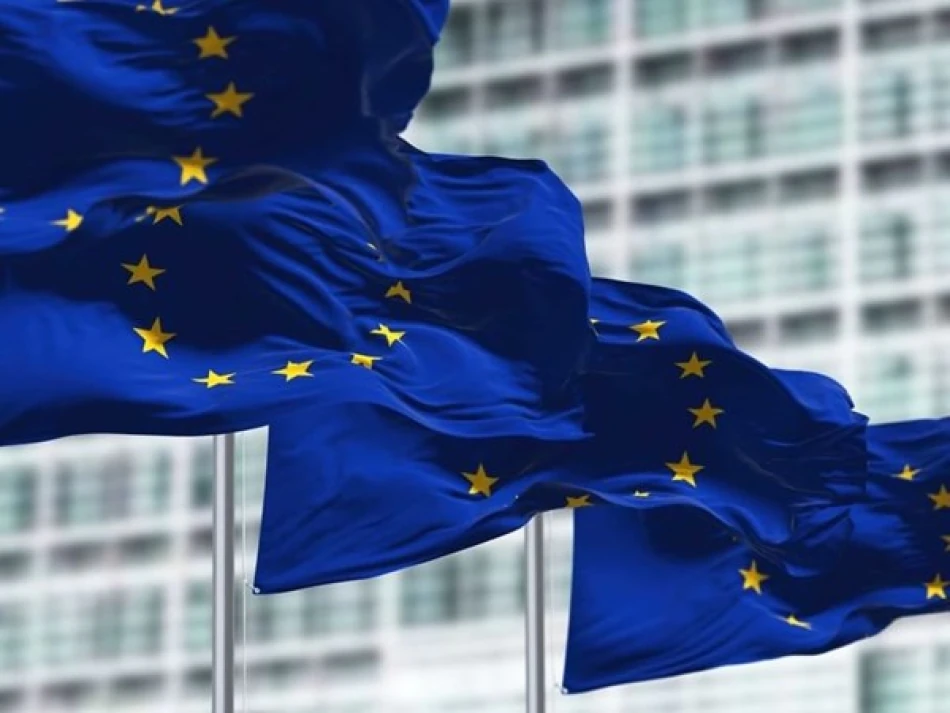
EU Delays Climate Action Goal Agreement, Leaving Stakeholders Uncertain
EU Climate Ambitions Hit Political Reality as Major Powers Block 2040 Emissions Target
The European Union's bold plan to slash greenhouse gas emissions by 90% by 2040 has stalled after France and Germany led opposition to fast-tracking the agreement, forcing diplomats to postpone a crucial vote and highlighting the growing tension between climate ambition and political pragmatism across the bloc.
The Breakdown of European Climate Consensus
What was supposed to be a routine ministerial approval on September 18 turned into a diplomatic impasse when EU ambassadors canceled the vote entirely during closed-door meetings on Friday. The proposed target would have committed the bloc to reducing net emissions by 90% compared to 1990 levels, with provisions allowing some reductions to come from purchasing international carbon credits.
The postponement reveals a fundamental split within the EU. While climate-progressive nations like Denmark, Spain, and the Netherlands champion the ambitious target, major economies including France, Poland, and Italy are demanding the issue be elevated to EU leaders' discussions in October—a move that significantly complicates prospects for agreement since leaders require unanimous consent, unlike the qualified majority voting used by ministers.
Why Major Powers Are Pumping the Brakes
Germany's environment ministry stated it supports the 90% reduction "in principle" but insists on government-level discussions before any final agreement. This cautious stance reflects broader concerns about the economic and industrial implications of such aggressive targets during a period of economic uncertainty and geopolitical tension.
The timing is particularly challenging for European industry, which is already grappling with high energy costs following the Ukraine conflict and increased competition from subsidized green technologies in China and the United States. Major industrial players are likely pressuring governments to ensure climate policies don't further undermine European competitiveness.
Diplomatic Horse-Trading Begins
To win over reluctant member states, EU diplomats are exploring several compromise options that could reshape the proposal's structure. These include expanding the role of international carbon credits in meeting the target, linking the climate agreement to modifications in other EU legislation such as the Carbon Border Adjustment Mechanism (the bloc's carbon tax on imports), or adjusting the 2035 deadline for banning internal combustion engine vehicles.
The carbon credit option is particularly significant, as it would allow European countries to meet targets through overseas investments rather than domestic emissions cuts—a approach that climate advocates argue undermines the integrity of the commitment while potentially offering a political escape valve for hesitant governments.
Global Climate Leadership at Stake
The delay comes at a critical moment for international climate diplomacy. The EU has positioned itself as a global leader on climate action, often using its regulatory influence to push international standards higher. A failure to agree on the 2040 target would undermine this leadership role just as the bloc seeks to maintain relevance against U.S. climate investments under the Inflation Reduction Act and China's dominance in renewable energy manufacturing.
The postponement also raises questions about whether the EU can maintain its ambitious climate trajectory as economic pressures mount and political landscapes shift across member states. With European Parliament elections earlier this year showing gains for climate-skeptical parties, the political calculus around environmental policy is clearly evolving.
The October leaders' summit will now serve as a crucial test of whether European unity on climate action can survive contact with domestic political realities, or whether the bloc's green transition will need to slow down to keep all members on board.
Most Viewed News

 Layla Al Mansoori
Layla Al Mansoori






